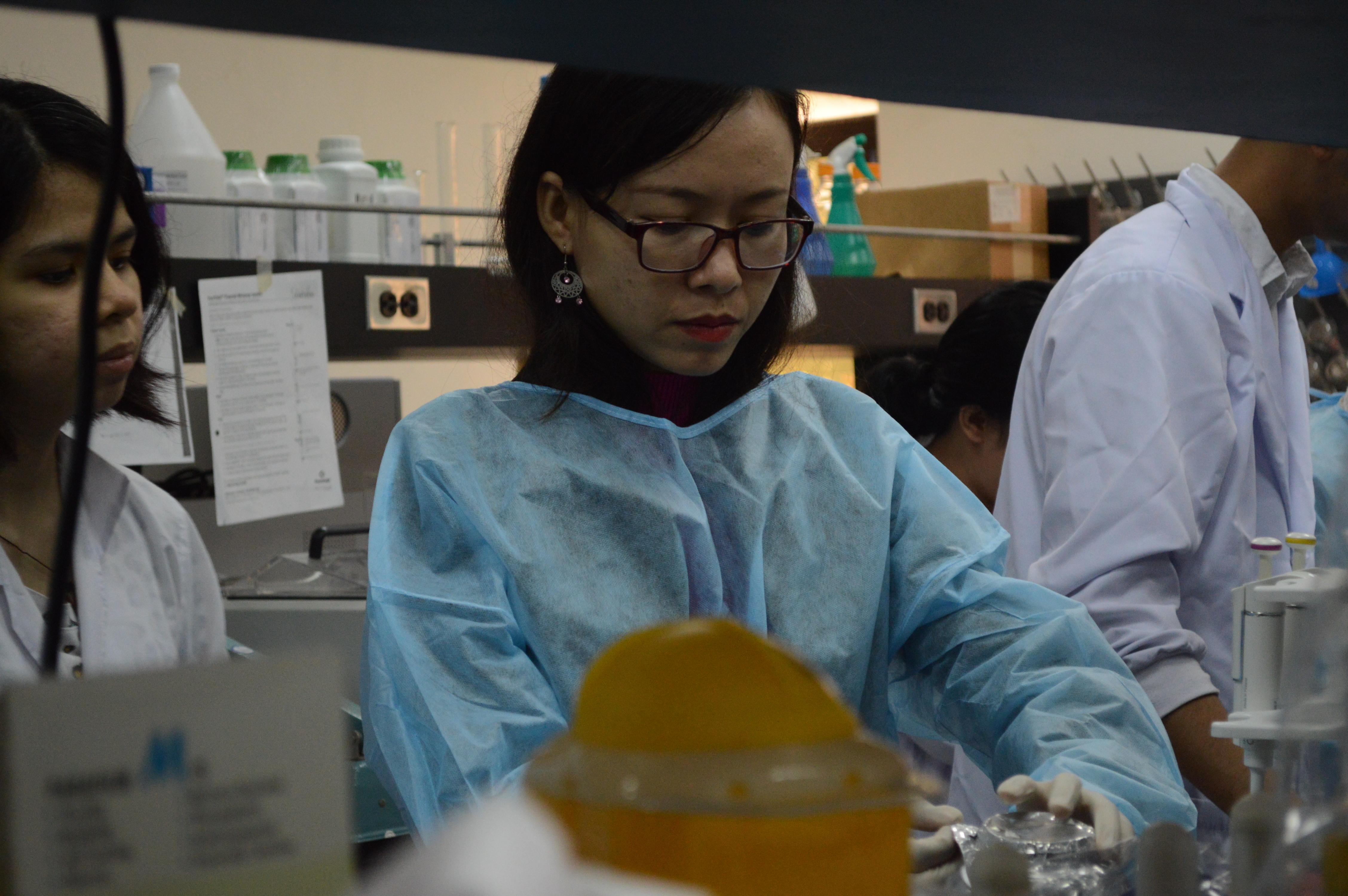China-Myanmar Partnership Advances Agricultural Innovation

Mango, a tropical fruit rich in nutrients, has a vital position in Myanmar's agriculture. Myanmar researcher Nann Miky Moh Moh worked with Chinese scientists at Zhejiang University in east China on genetically improving the flavor and variety of the fruit.
Although the regulatory roles of microRNAs (miRNAs) and long non-coding RNAs (lncRNAs) have been widely studied in many plants, mango research in this field remained unexplored. "This is the first study to provide information on non-coding RNAs (ncRNAs) of mango," Moh Moh told Science and Technology Daily.
During her time at Zhejiang University, she worked with Professor Chen Ming's bioinformatics research group at the College of Life Sciences. Their research aimed to identify the genetic factors affecting mango flavor and heat resistance.
"For mango flavor development, some major genes play a role in its resistance mechanisms," Chen said. "We studied the processes related to temperature regulation and identified the specific genes or targets involved."
Using advanced computational tools and through experiments, Moh Moh identified over 100 miRNAs and more than 60 cold-responsive lncRNAs interact with key gene family in Mango. These discoveries have provided new insights into genetic mechanisms that could inform breeding strategies for improving mango varieties.
"The results of our research could potentially be integrated with local institutions to transform genetic findings into improved mango cultivars," Chen said.
A journey of discovery
For Moh Moh, conducting research in China has been a transformative experience. Driven by a deep interest in biological systems, she initially pursued biotechnology, later switching to bioinformatics due to its potential to analyze large datasets using advanced computational tools.
"As Myanmar researchers, we often have ideas but lack the facilities to pursue them fully," Moh Moh explained. In contrast, China's cutting-edge research infrastructure and collaborative opportunities attracted her.
She joined Zhejiang University through a program funded by the Ministry of Science and Technology of China, working with a high-level research team. "Zhejiang University is one of China's leading institutions, highly regarded globally. Its strong reputation in life sciences made it my top choice," she said.
Her dedication did not go unnoticed by her team. "She's serious and devoted to research," Chen said.
Before arriving in China, Moh Moh had conducted molecular analysis on mangoes but lacked expertise in computational analysis using advanced bioinformatics tools. At Zhejiang University, she started learning advanced bioinformatics techniques and tools from scratch and worked closely with her team to bridge the knowledge gap.
"Whenever I think about my time at Zhejiang University, I feel happy," she said. "The lab members were kind, talented and hardworking. They inspired me both professionally and personally."
Strengthening Myanmar-China collaboration
Currently working in a private company in Thailand, Moh Moh remembers her time at Zhejiang University fondly and hopes to return to China for further research. "Living and working in China broadened my understanding of Chinese culture, history and philosophy," she said.
China has significantly increased investments in research, development and renewable energy, fostering international collaborations. Myanmar and China share a long-standing "pauk-phaw" (fraternal) friendship, which will celebrate its 75th anniversary in 2025.
In recent years, the two nations have deepened cooperation in science, technology and innovation. In December 2023, China's Ministry of Commerce and the Mekong River nations, including Myanmar, adopted the Five-Year Development Plan for Cross-Border Economic Cooperation (2023 — 2027). The plan includes a framework for collaboration in science, technology and innovation across the Mekong-Lancang region.
In November 2023, China and Myanmar signed a memorandum of understanding to enhance cooperative technology and innovation initiatives.
A future rooted in science
China also plans to implement the Lancang-Mekong Space Cooperation Plan, which includes launching the "Fudan-1 Lancang-Mekong Future Star" project and establishing the Lancang-Mekong youth astronomical science research center. These initiatives will strengthen scientific collaboration and innovation in the region.
As China and Myanmar continue to identify priorities for joint research, the success of projects like Moh Moh's mango study highlights the transformative power of international cooperation. By leveraging advanced technology and fostering cross-border partnerships, Myanmar's mango industry — and its broader agricultural sector — could see significant advancements in the years to come.
This column is written in cooperation with the China Science and Technology Exchange Center (CSTEC).






